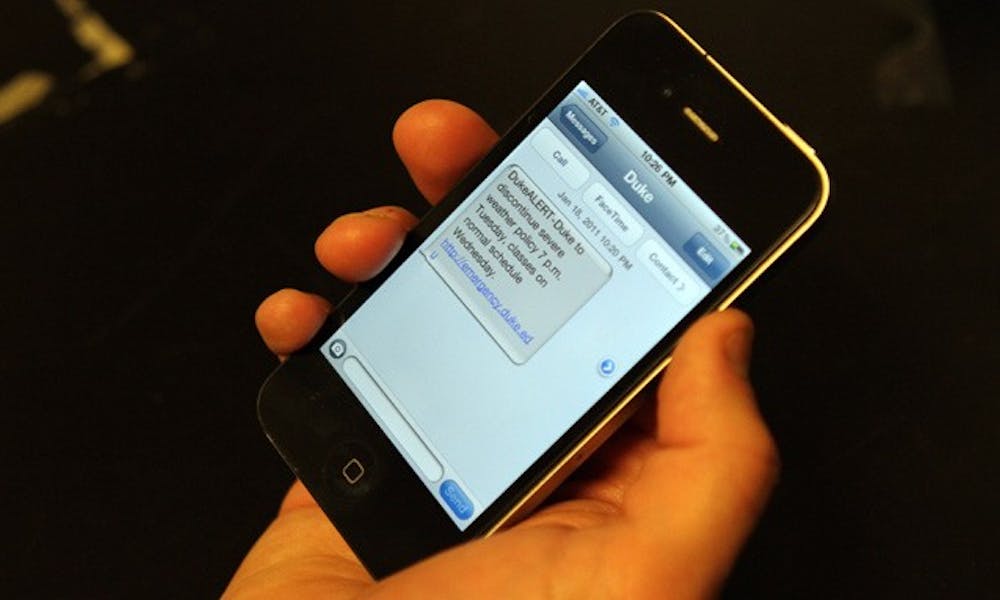With the increasing popularity of text messaging, the DukeALERT system has undergone a change in policy.
Students will now be required to receive emergency notifications via text message, replacing the previous opt-in policy.
“During the last several years, text messaging has become an increasingly effective way to reach many members of the Duke community because so many people are constantly connected via their cell phones,” said Paul Grantham, assistant vice president of communication services.
Receiving alerts via text message was optional until Dec. 20, when all students were required to provide their phone numbers as a part of the standard student data verification process. The approximately 4,000 employees who use Duke-purchased cell phones for business are also required to join the system.
DukeALERT, which added its text messaging option in 2008, also uses e-mail, emergency lines and its website to inform students and employees of emergency situations.
About 8,000 individuals are currently signed up for the DukeALERT texting service, which is designed to update students in a quick and efficient way. With the implementation of the new policy, the system has as many as 12,000 additional phones to be registered, Grantham said.
Several other schools, such as North Carolina State University, have developed similar emergency text messaging services since the Virginia Tech shooting in 2007.
Information collected during the recent winter storm gives evidence of an increasing number of people accessing emergency information from their phones. Web metrics show that the DukeALERT emergency website received 22,400 visits from Sunday to Wednesday last week. Sixteen percent of this traffic was from smartphone devices such as iPhones and Blackberries, said Grantham.
There are several concerns about making participation in the texting service mandatory. One is the cost of text messaging. Several people either do not have texting or are not willing to pay the charges.
Some students were also concerned with their privacy when giving out their numbers.
“I feel like a student should not have to give up their phone number if they don’t want to,” freshman Alex Kazandjian said. “They can encourage you to use it, but I don’t think that they should make it mandatory. Although at the same time I see where they are coming from.”
In a Duke News press release, the University assures that the numbers collected will not be included in Duke’s online directory.
“I think it’s a good thing because who doesn’t want to be aware when there is a crime on campus? As long as they don’t take advantage of DukeALERT by sending an excessive amount of messages, I think it’s fine,” freshman Minshu Deng said.
Despite these concerns, the DukeALERT system still allows the University to communicate almost instantly with the Duke community regarding dangerous situations, increasing the safety on campus, Grantham noted.
“If we have the opportunity to get a message out to people about a potentially dangerous situation, it just made sense to do it,” Grantham said.
Get The Chronicle straight to your inbox
Signup for our weekly newsletter. Cancel at any time.

